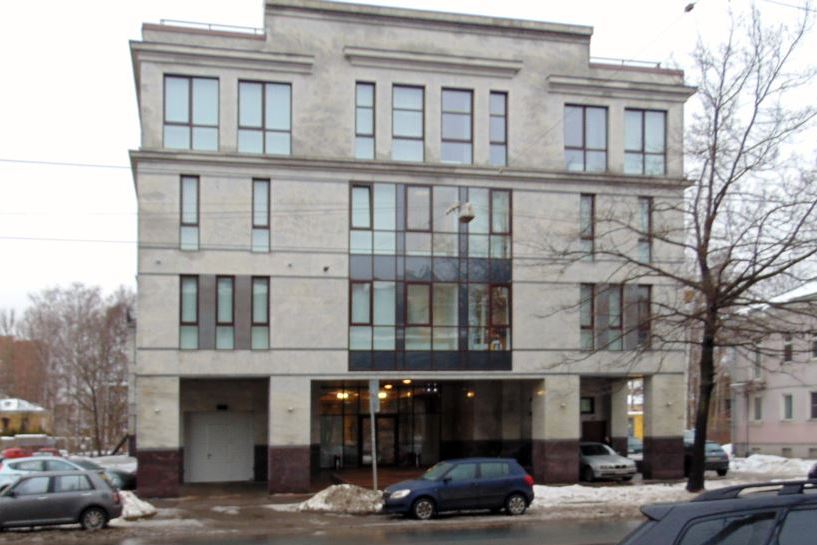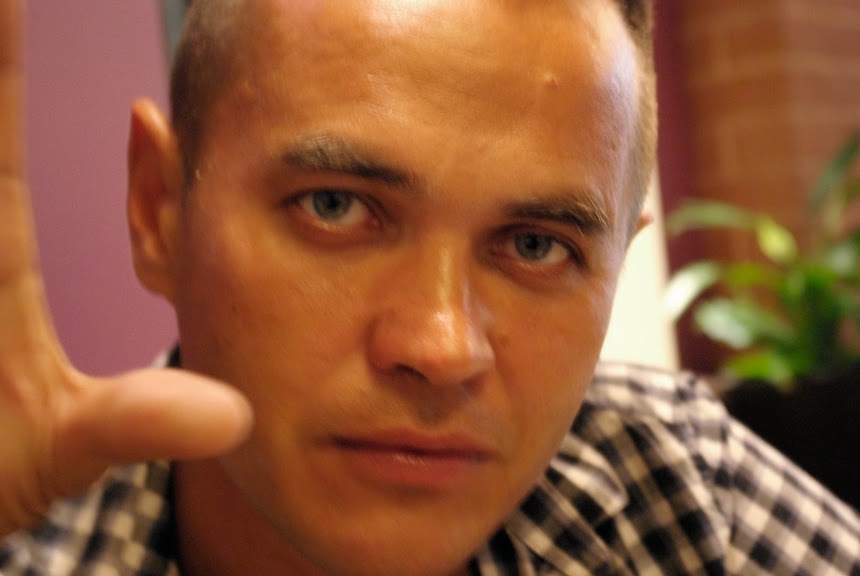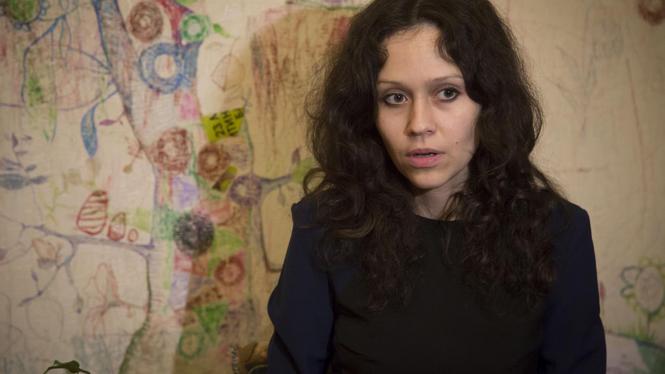Trolls in the Media
Parasites
In 1917, when Vladimir Lenin predicted that the potential of the film industry, which just had started to emerge, would probably be more important for the state propaganda than any other medium, the internet was still a distant dream. One hundred years later, the Kremlin has adapted to the evolution, and influences the public opinion by using digital techniques. This is done by creating and developing web platforms as Sputnik and ThinkRussia.com. But since the visitors of these forums are already sharing the regime's ideas, the Kremlin has been thinking of a way to break into other virtual places. Which is rather easy to organise, thanks to the rapid development of the so-called Web 2.0 technology which we know as interactive internet from Facebook and its Russian counterpart Vkontakte.
Indeed, these days, you don't need to have a website or a blog by your own to spread your opinion, since you can parasitize on the efforts made by others and spread your messages en masse through existing blogs, newsgroups, chat rooms and social networks which allow visitors' comments. And that is exactly what the Kremlin does by using internet trolls. Internet trolls are people who deliberately give a different turn on the discussions on those forums, often using various hidden identities. Unsuspecting internet users may be surprised by the massive expressions of support or even hagiographies that are posted daily on the social media with relation to Vladimir Putin. At first sight, it looks like thousands of Russians spontaneously take the time to praise their Great Leader in heaven and are willing to sacrifice their lives for him. But in reality, it's the work of groups of well-paid hacks working in shifts of 12 hours and using various identities, who are writing what they are told. There are already many of such groups. The most important one is the Агентство интернет Исследований [Agentsvo internet Issledovany] or Internet Research Agency, operating in Saint Petersburg.
Internet Research
In June 2014, the private news service BuzzFeed from New York could intercept some documents of the Internet Research Agency, a company founded on July 26, 2013 in Saint Petersburg by Mikhail Kurkin, and headed by director Nikolay Churmakov.

From the documents found by BuzzFeed appeared that the Internet Research Agency is a company professionally involved in trolling in order to glorify the image of Vladimir Putin and to ward off all criticism of his regime on the internet. The man behind the company is Yevgeny Viktorovich Prigozhin (°1961), the owner of the catering company Concord, which organised the celebration of the re-inauguraion of Vladimir Putin as a president in 2012. For the year 2014, Prigozhin got a budget of 10 million dollar from the Kremlin to organise the trolling.

Yevgeny Viktorovich Prigozhin
The Ministry of Truth
When the Research Agency's existence became known in 2014, the trolls lived in a modern four-storey office building at Savushkina ulitsa No. 55 in Saint Petersburg.

Savushkina ulitsa no. 55 in Saint Petersburg
Presumably, the troll army was already around for some time, but in August 2013, the Research Agency settled in Primorskoye Shosse No. 131 in Olgino, Saint Petersburg. Hence the nickname Olgino trolls. In 2014, they moved to the larger building in the Savushkina ulitsa, and on February 1, 2018, they moved again, this time to occupy four floors in the Lakhta-2 Business Center in Optikov ulitsa No. 4, building 3. So now they are called the Lakhta trolls.
The building houses two companies. In addition to the aforementioned Internet Research Agency, there is also the Интернет исследования [Internet issledovanija] or Internet Research, a company owned by Mikhail Bystrov, a former police officer from Saint Petersburg. That company also belongs to the Concord holding of Yevgeny Prigozhin.
The trolling is organised in a professional manner in this building. In 2015, 1,000 employees worked around the clock, in 12-hour shifts. They work in some specialized departments, the names of which are spontaneously reminiscent of the Ministry of Truth from the novel 1984 by George Orwell (1903-1950).
One of the departments is the Отдел Специалистов социальных сетей [Otdel Spetsialistov sotsialnikh setey] or Department of specialists in social networks. They post their comments on networks like Twitter, LiveJournal, Facebook and its Russian counterpart Vkontakte.
The Отдел блогеров [Otdel blogerov] or Department of bloggers focuses on the blogs of well-known opponents of the regime as Aleksey Anatolievich Navalny (1976-2024) while the Отдел быстрого реагирования [Otdel bystrogo reagitovaniya] or Department for Rapid interventions is ready to respond immediately to unforeseen incidents.
The Креативный отдел [Kreativny otdel] or Creative department designs the so-called demotivators. Demotivators are cartoons, photomontages, memes and graphs which can be quickly spread all over the Internet. They make web pages with difficult to remember URLs like, for instance, http://xn--80acbo6d9a.xn--p1ai/index.php, on which they publish thousands of ready-made demotivators on behalf of the trolls. Click on the arrow to watch some demotivators from the trolls' archives.
Sow confusion
In April 2014, the trolls led by Igor Osadchi launched an organized online campaign to change public opinion in the Western world in a way that would be helpful to the Russian authorities regarding a military intervention in Ukraine. It was the start of a war that was initially only waged in the Donbas, but later, on February 24, 2022, expanded into a full and bloody invasion of Ukraine.
Between April 2014 and March 2020, the trolls were also very active in calling for dozens of demonstrations in the United States. At least 75 projects were also identified during that period to spread fake news on a variety of topics, including Obamacare, electoral fraud cases, the influence of Islam, the Black Lives Matters movement, the Brexit, and many more. The trolls operated under false names such as United Muslims of America, Stand For Freedom, Down with Hillary, Tennessee Republicans, Heart of Texas, BlackMattersUS, LGBT United, and many others. In order to create confusion, they organised demonstrations both in favour of and against Donald Trump.
On March 12, 2020, Clarissa Ward of the news channel CNN revealed that the trolls were also trying to disrupt the 2020 presidential campaign in the United States from Nigeria and Ghana.
No teamwork
The above might suggest teamwork, but reality is very different. As in the novel 1984, the employees of the various departments in the Savushkina ulitsa no. 55 in Saint Petersburg do rarely see each other. This is a conscious choice clearly determined in the Приказ «О разъяснениях дисциплинарного характера» or the Regulations to clarify the discipline. «Close personal contacts in the company are expressly prohibited», the regulations say. Furthermore, the trolls can not leave their rooms during their 12-hour shifts, and all the curtains must remain closed.
Early 2015, the Russian blogger Marat Burkhard succeeded to work undercover for two months at Savushkina ulitsa no. 55. He later told how, in every department, the trolls are divided into groups of three. One of them is playing the злодей [zlodej] or villain. He starts by criticizing the authorities on a blog or in a network. After that, the other two start writing against him, posting satirical images or graphs and applaud the leadership of Putin. They do so under different identities. At one moment they act as a housewife who is baking a cake in her kitchen in Ekaterinburg, and two minutes later they pretend to be a truck driver somewhere stuck in traffic between Tver and Moscow. A troll has to post at least 135 comments a day, among which 50 on news websites. They have to manage six different accounts on Facebook and send around 50 tweets a day from 10 different Twitter accounts.Each post should be at least 200 characters long.

Marat Burkhard
The trolls can not post anything they want, though. They get quite detailed information on the specific topics and the related hashtags and links to graphics and images. We could lay our hands on their instructions for the week of February 28 to March 7, 2015. It's a document of 118 pages, prepared on the day after the murder of the well-known opposition leader Boris Yefimovich Nemtsov (1959-2015). The main themes on that day were Opposition, Ukraine, VVP (Vladimir Vladimirovich Putin), the United States and Europe. For each theme, the trolls get a description of the theme, the new «facts», the «correct» points of views and conclusions, and the related hashtags and keywords. Only when they are unexpectedly exposed they sometimes react strangely. When your webmaster addressed a troll directly in a discussion on the Facebook page of The Moscow Times, he fell out of his role. He could only respond with «u fool go to hell», which was much less than the 200 characters he was required to write. Click on the arrow below to see the Instructions of the trolls.
More former trolls are «coming out». One of them, journalist Lyudmila Savchuk (°1980), also went working undercover in the Troll Factory and even sued her former employer for violations of the labour law. What no-one expected happened: she won her case, albeit for the symbolic compensation of one ruble.

Lyudmila Savchuk
The earnings
An experienced troll is paid about 40,000 rubles per month. That's 546 euros or 614 dollars. For a westerner, it may not seem much, but it's significantly better than the 25,000 rubles - 341 euros or 384 dollars - which an ordinary newspaper journalist gets in Russia. Multilingual trolls who can attack foreign websites may earn up to 65,000 rubles - 887 euros or 997 dollars - or even more.
Working as a troll requires an absolute commitment, because the system is rather repressive. You should post 135 massages a day, and arriving late at work will be fined with a penalty of 500 rubles, which corresponds to 8 euros or 9 dollars. The latter has already yielded a few amusing Monty Python-like videos of galloping trolls who are trying to arrive at work on time. However, the work of a troll is a serious matter: the offices are tight and barely furnished, no personal decorations can be placed, and laughter is prohibited in the workplace. Those who do laugh can be dismissed.
These trolls are hurrying to avoid a 500 rubles fine
If Bulgakov lived today, he would undoubtedly have described a few trolls next to characters like Nikanor Ivanovich Bosoy and Aloisi Mogarych, while Yevgeny Prigozhin and Mikhail Bystrov would perhaps be parading in the footsteps of Baron Meigel at the Ball of Satan.





